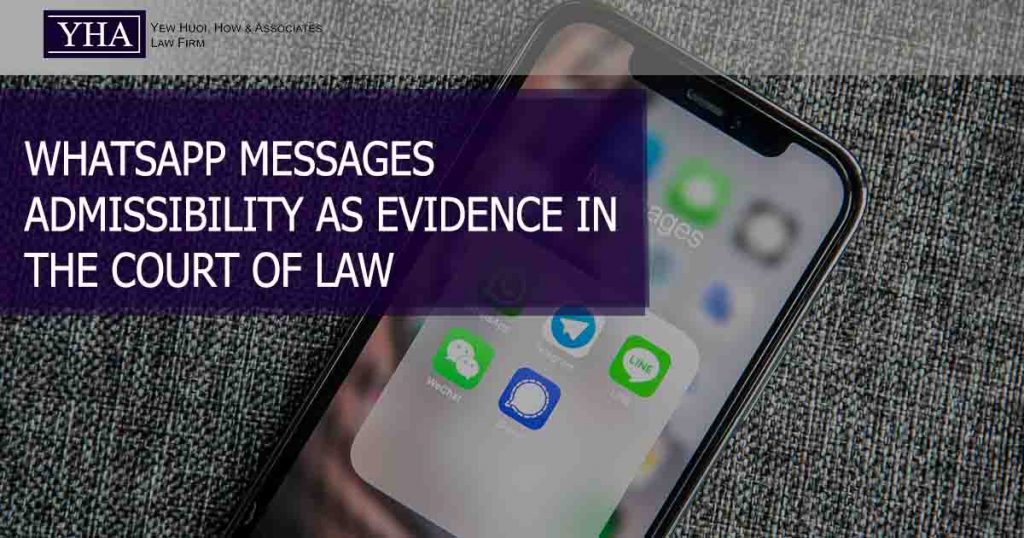Is record of WhatsApp conversations admissible in court?
Yes.
- WhatsApp messages are direct evidence.
- As long as the WhatsApp messages are relevant, they are admissible to prove the existence of facts.
- WhatsApp messages are relevant to support the existence of any oral conversation or evidence between the individuals.
Can I use my WhatsApp messages with third party as evidence when the third party could no longer be located and cannot be called as witness?
Yes.
- Your WhatsApp messages with the third party is admissible under section 73A(2) Evidence Act 1950 (“EA 1950”) because the third party cannot be located without undue delay or expense.
- However, you have to show that the third party is impossible to be found. The court has the discretion to admit the evidence according to the individual facts of the case.
- We are of the view that WhatsApp conversation in its original form is unlikely to be tempered and is reliable.
Our views:
- You can be sued for anything said in WhatsApp as they are written records of your conversation.
- You have to be discreet with posting of messages or pictures in a group chat. Avoid posting defamatory statements or pictures.
- You should always confirm the authenticity and accuracy of the original messages before forwarding the same to other individuals or group chat.
- Anything you post or said in your WhatsApp chats can be used against you in court of law.

